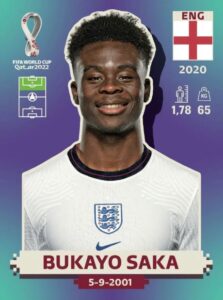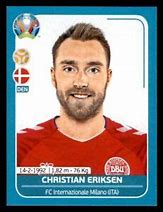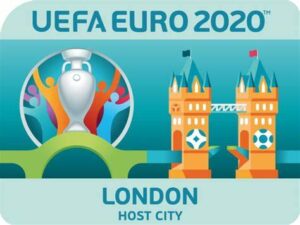2022 World Cup – Tuesday 22 November 2022
Group B: England 6 (3) – (0) 2 Iran (Khalifa International Stadium, Al Rayyan)
England scorers: Bellingham (35′), Saka (43′, 62′), Sterling (45’+1’), Rashford (71′), Grealish (90′)
Iran scorers: Taremi (65′, 90’+13’ pen)
Group A: Senegal 0 (0) – (0) 2 Netherlands (Al Thumama Stadium, Doha)
Netherlands scorers: Gakpo (84′), Klaassen (90’+9’)
Group B: USA 1 (1) – (0) 1 Wales (Ahmad bin Ali Stadium, Al Rayyan)
USA scorer: Weah (36’) Wales scorer: Bale (82’ pen)
 So what of day two of the World Cup? England romped to victory over Iran, Netherlands scored two late goals to see off Senegal and of course Gareth Bale rescued a point for Wales against the USA.
So what of day two of the World Cup? England romped to victory over Iran, Netherlands scored two late goals to see off Senegal and of course Gareth Bale rescued a point for Wales against the USA.
The Three Lions victory was quite astonishing given the often pragmatic approach Gareth Southgate’s team have adopted in their tournament games. However, it was a bright and breezy attacking performance from England’s young guns in Jude Bellingham and Bukayo Sako which set the team on the way to three points. There was our old friend VAR which had an interesting day. Harry Maguire was man-handled at a first-half corner with no penalty awarded and no VAR check. Fast forward to time added on in the second half and a shirt pull saw a penalty for Iran. If that really was worthy of a penalty then in reality there would be a spot-kick awarded at every corner kick. Just where is the consistency with the technology?
I’m genuinely struggling to get into this tournament. I did watch the England game but really with only half an eye as I was working in my laptop and didn’t even tune in for the other two games of the day.
To add to my down mood…the pressure from FIFA, i.e. yellow cards for players, if wearing the One Love armbands. Disappointing that FIFA resorted to this and that the various nations bowed to the pressure. Well done to Alex Scott for wearing one though whilst presenting though. Another unacceptable situation from the day – the most expensive World Cup ever and the ticketing system and associated app failed for fans crashes leaving them unable to gain entry to the stadiums and missing part of the game.
Today’s games:
GROUP C: Argentina v Saudi Arabia
Argentina are amongst the favourites for this tournament and its not difficult to see why with the talent of Messi, Martinez and Di Maria in their ranks. A World Cup win would be a fitting end to Messi’s international career. Yes, the La Albiceleste have in the past have suffered opening game shocks – 1990 against Cameroon springs to mind, but it would be a major surprise if this was not a routine win for the two-time World Champions.
GROUP D: Denmark v Tunisia
Whilst Christian Ericksen has been back playing for his country since his horrific collapse at the Euros, this will be the first time as such back on the World stage in a major tournament. No doubt the Dane will take it all in his stride, and he will hope to be the spark against Tunisia who are appearing at their sixth World Cup. Whilst many of the Danish squad will be familiar to fans in the UK, the Tunisian squad is one spread across the globe. One name to look out for is Hannibal Mejbri, the youngster on loan at Birmingham City from Manchester United. A difficult one to call and a draw possibly on the cards.
GROUP C: Mexico v Poland
A South America v Europe clash concludes the opening games in Group C. Mexico qualified as CONCACAF third round runners-up with Poland coming through as UEFA play-offs Path B winners. For those looking for Premier League connections in the Mexican squad, then there is Raul Jimenez at Wolves, whilst for Poland, the Aston Villa pair of Matty Cash and Jan Bednarek (on-loan from Southampton) are joined by Krystian Bielik of Derby County, currently on-loan at Championship side Birmingham City. Of course the focus will be on the prolific striker, Polish captain Robert Lewandowski, who has had a sterling start to his career at Barcelona. These two have met in the 1978 World Final Group Stages, with Poland winning 3-1 in Argentina. Would be a surprise if there was a similar result today, in a game Poland may well nick through a Lewandowski winner.
GROUP D: France v Australia
Current World Champions France take on Australia who came through winning the AFC v CONMEBOL play-off against Peru winning 5-4 on penalties. The Aussies have six players plying their trade in Scotland – Nathaniel Atkinson, Kye Rowles, Cameron Devlin (all Hearts), Aziz Behich (Dundee United), Aaron Mooy (Celtic) and Keanu Baccus (St Mirren). The teams met at the last World Cup in the Group Stages. France went ahead through Antoine Griezmann only for Mile Jedinak to level, but Les Bleus won 2-1 with Paul Pogba getting the winner. The French will hope this is a good omen and a similar win to 2018 could well be on the cards.
 Eriksen impact: Firstly, having witnessed the horrific events in the Denmark v Finland game the previous day, I imagine twenty-four hours on, the football world’s thoughts were very much on Christian Eriksen and his recovery. The immediate and continued reaction showed once more the incredible and special unity possible in football. Regardless of nationality, club allegiance, interest, at moments like this, football unites in worry, hope and mostly support and it’s a poignant and powerful thing. Naturally, whilst the Danish and Finnish players were obviously those most closely affected, every team has players who will have crossed paths to varying degrees with Eriksen – past teammates, like Harry Kane and Jan Vertonghen, current teammates like Romelu Lukaku and Ivan Perisic, and myriad opposition players – and even for those who haven’t, I can’t imagine there was any player, fan or human being not affected. And even as the tournament continues, for the players involved what happened will surely play on their minds. Fortunately, a rapid and experienced medical response and the noble reaction of teammates, opposition and officials had a huge impact, but it also perhaps served as a reminder of the importance of first aid and emergency support at all levels of the game. Christian Eriksen will remain at the forefront of the thoughts and best wishes of everyone and although there is still a tournament being played, Eriksen’s recovery is the greatest victory that there can be.
Eriksen impact: Firstly, having witnessed the horrific events in the Denmark v Finland game the previous day, I imagine twenty-four hours on, the football world’s thoughts were very much on Christian Eriksen and his recovery. The immediate and continued reaction showed once more the incredible and special unity possible in football. Regardless of nationality, club allegiance, interest, at moments like this, football unites in worry, hope and mostly support and it’s a poignant and powerful thing. Naturally, whilst the Danish and Finnish players were obviously those most closely affected, every team has players who will have crossed paths to varying degrees with Eriksen – past teammates, like Harry Kane and Jan Vertonghen, current teammates like Romelu Lukaku and Ivan Perisic, and myriad opposition players – and even for those who haven’t, I can’t imagine there was any player, fan or human being not affected. And even as the tournament continues, for the players involved what happened will surely play on their minds. Fortunately, a rapid and experienced medical response and the noble reaction of teammates, opposition and officials had a huge impact, but it also perhaps served as a reminder of the importance of first aid and emergency support at all levels of the game. Christian Eriksen will remain at the forefront of the thoughts and best wishes of everyone and although there is still a tournament being played, Eriksen’s recovery is the greatest victory that there can be. Home advantage?: As part of its 60th anniversary celebrations, UEFA opted to move away from its traditional approach of a single or two countries hosting the event to a fully pan-European tournament, which is a nice idea in principle, but in reality isn’t perhaps the most sensible, not least in these COVID times, but there we have it. Sadly, I’m not party to UEFA’s machinations so am unsure as to why it was 11 cities that were chosen, but each of the qualifying host nations are granted the opportunity to play at least two groups matches at home, whilst six nations, including Italy, Denmark, Netherlands, Spain, Germany and, crucially, England will play all three group games at home venues. Contrast this to Belgium who are flitting between St Petersburg and Copenhagen and Wales who find themselves manoeuvred between Azerbaijan and Rome, and you have to feel that there is a home advantage for England. More so than any other tournament, when teams would be based in a country and travel would be limited within that nation, or nations, travel and moving camps has to be more of a factor than ever. The group stages and knockout rounds will see the competition similarly spread across various destinations, but notably with the semi-finals and finals scheduled for Wembley, there is a real incentive and motivation for England to thrive. However, given that home nations have only won the Euros three times, perhaps we should give one of the other nations the title of home nation.
Home advantage?: As part of its 60th anniversary celebrations, UEFA opted to move away from its traditional approach of a single or two countries hosting the event to a fully pan-European tournament, which is a nice idea in principle, but in reality isn’t perhaps the most sensible, not least in these COVID times, but there we have it. Sadly, I’m not party to UEFA’s machinations so am unsure as to why it was 11 cities that were chosen, but each of the qualifying host nations are granted the opportunity to play at least two groups matches at home, whilst six nations, including Italy, Denmark, Netherlands, Spain, Germany and, crucially, England will play all three group games at home venues. Contrast this to Belgium who are flitting between St Petersburg and Copenhagen and Wales who find themselves manoeuvred between Azerbaijan and Rome, and you have to feel that there is a home advantage for England. More so than any other tournament, when teams would be based in a country and travel would be limited within that nation, or nations, travel and moving camps has to be more of a factor than ever. The group stages and knockout rounds will see the competition similarly spread across various destinations, but notably with the semi-finals and finals scheduled for Wembley, there is a real incentive and motivation for England to thrive. However, given that home nations have only won the Euros three times, perhaps we should give one of the other nations the title of home nation. Kalvin Phillips: There was much talk going into the tournament around attacking players – Should Sancho be included? Would Grealish be fit? How on earth can we fit in all of these attacking options? – and then when the squad announcement was made attention turned to Harry Maguire and the four right-backs, whilst one man went largely under the radar – Kalvin Phillips. After an excellent couple of seasons with Leeds, Phillips got a much-deserved first England call-up in August last year and hasn’t looked back. Indeed, perhaps most notably, there was never any question of him making Gareth Southgate’s final 26 – his name never came up for discussion. But as the tournament neared and a lot of focus turned to Jordan Henderson’s fitness and possible return, the question of midfield partnerships suddenly arose. Phillips found himself named alongside Rice, but with Jordan Henderson continuing to build towards his return, the spotlight was on, and Phillips didn’t disappoint, putting in a superb performance, both breaking up play and pushing forward, crucially for England’s goal. He took his chance with both hands and surely deserves his spot against Scotland. Tyrone Mings who was similarly under the microscope in what has been deemed a problem area for England with the injury to Harry Maguire put in a solid performance, whilst Foden was, as ever, a shining light. Had Euro 2020 not been delayed, Phillips and Foden, neither of whom made their debuts until August 2020, and Mings, who was still breaking through, may not have featured. What a difference twelve months makes!
Kalvin Phillips: There was much talk going into the tournament around attacking players – Should Sancho be included? Would Grealish be fit? How on earth can we fit in all of these attacking options? – and then when the squad announcement was made attention turned to Harry Maguire and the four right-backs, whilst one man went largely under the radar – Kalvin Phillips. After an excellent couple of seasons with Leeds, Phillips got a much-deserved first England call-up in August last year and hasn’t looked back. Indeed, perhaps most notably, there was never any question of him making Gareth Southgate’s final 26 – his name never came up for discussion. But as the tournament neared and a lot of focus turned to Jordan Henderson’s fitness and possible return, the question of midfield partnerships suddenly arose. Phillips found himself named alongside Rice, but with Jordan Henderson continuing to build towards his return, the spotlight was on, and Phillips didn’t disappoint, putting in a superb performance, both breaking up play and pushing forward, crucially for England’s goal. He took his chance with both hands and surely deserves his spot against Scotland. Tyrone Mings who was similarly under the microscope in what has been deemed a problem area for England with the injury to Harry Maguire put in a solid performance, whilst Foden was, as ever, a shining light. Had Euro 2020 not been delayed, Phillips and Foden, neither of whom made their debuts until August 2020, and Mings, who was still breaking through, may not have featured. What a difference twelve months makes! Hey, Jude: Can you remember what you were doing at 17? Learning to drive, perhaps; maybe taking exams, or even something a little less virtuous. Whatever it was, it wouldn’t have been representing your country in the Euros. In fact, only one person in history can claim that achievement in the men’s Euros – Jude Bellingham. When he was brought on as a sub against Croatia, at the age of 17 years and 349 days, Bellingham broke the previous record held by Jetro Willems of the Netherlands, who was 18 years and 71 days when he featured in Euro 2012. Bellingham is also some 23 years younger than the oldest ever player at the Euros – Gabor Kiraly of Hungary, who was 40 years and 86 days – and 22 years younger than the oldest ever outfield player – Germany’s Lothar Matthaus, who was 39 years and 91 days. The teenager joins an illustrious group of players who hold the honour of being the youngest players for their nations at the Euros, including Ivan Rakitic (Croatia), Tomas Rosicky (Czech Republic), Michael Laudrup (Denmark), Lukas Podolski (Germany) and Paolo Mancini (Italy) to name a few. In terms of the youngest goalscorer at the Euros, Johan Vonlanthen of Switzerland currently holds that title, aged 18 years and 141 days, so Bellingham could feasibly take that one too. Oh, and one other record of note, the youngest player to feature in a Euros final was Renato Sanches of Portugal, aged 18 years and 327 days. Jude Bellingham only turns 18 twelve days before the final, just saying…
Hey, Jude: Can you remember what you were doing at 17? Learning to drive, perhaps; maybe taking exams, or even something a little less virtuous. Whatever it was, it wouldn’t have been representing your country in the Euros. In fact, only one person in history can claim that achievement in the men’s Euros – Jude Bellingham. When he was brought on as a sub against Croatia, at the age of 17 years and 349 days, Bellingham broke the previous record held by Jetro Willems of the Netherlands, who was 18 years and 71 days when he featured in Euro 2012. Bellingham is also some 23 years younger than the oldest ever player at the Euros – Gabor Kiraly of Hungary, who was 40 years and 86 days – and 22 years younger than the oldest ever outfield player – Germany’s Lothar Matthaus, who was 39 years and 91 days. The teenager joins an illustrious group of players who hold the honour of being the youngest players for their nations at the Euros, including Ivan Rakitic (Croatia), Tomas Rosicky (Czech Republic), Michael Laudrup (Denmark), Lukas Podolski (Germany) and Paolo Mancini (Italy) to name a few. In terms of the youngest goalscorer at the Euros, Johan Vonlanthen of Switzerland currently holds that title, aged 18 years and 141 days, so Bellingham could feasibly take that one too. Oh, and one other record of note, the youngest player to feature in a Euros final was Renato Sanches of Portugal, aged 18 years and 327 days. Jude Bellingham only turns 18 twelve days before the final, just saying… Tough test: England’s 1-0 victory over Croatia ensured England’s best ever start to a Euros; indeed, they had never won their first game at the tournament before. Whilst there were a lot of positives to take from the match, there is, naturally, room for improvement. It is difficult to be at your best in the first game, nor, quite honestly, would you want to be, hoping to build into the competition, so a victory and three points was the most important thing, and against a Croatia side who have been known to cause the odd England upset, it was a solid enough start, but the next game against Scotland may be an even bigger challenge. It is, after all, the oldest rivalry in football, dating back to 1872, and has seen some 113 matches, of which England hold a slight advantage, including in recent years, although the most recent result was a 2-2 draw. Whilst England’s biggest victory was 9-3 in 1961 and Scotland’s 7-2 in 1878, which would make for entertaining affairs, I suspect it will be a much-closer and harder-fought contest when the two sides meet on Friday. England will be looking to build momentum, whilst Scotland will be wanting to make the most of their first major tournament in 23 years. With the likes of Andy Robertson, Scott McTominay and John McGinn, Scotland will be familiar but formidable opponents and surely buoyed by a match against England. The Three Lions will face a tough test and will certainly need to raise their game to keep their 100% start in the tournament.
Tough test: England’s 1-0 victory over Croatia ensured England’s best ever start to a Euros; indeed, they had never won their first game at the tournament before. Whilst there were a lot of positives to take from the match, there is, naturally, room for improvement. It is difficult to be at your best in the first game, nor, quite honestly, would you want to be, hoping to build into the competition, so a victory and three points was the most important thing, and against a Croatia side who have been known to cause the odd England upset, it was a solid enough start, but the next game against Scotland may be an even bigger challenge. It is, after all, the oldest rivalry in football, dating back to 1872, and has seen some 113 matches, of which England hold a slight advantage, including in recent years, although the most recent result was a 2-2 draw. Whilst England’s biggest victory was 9-3 in 1961 and Scotland’s 7-2 in 1878, which would make for entertaining affairs, I suspect it will be a much-closer and harder-fought contest when the two sides meet on Friday. England will be looking to build momentum, whilst Scotland will be wanting to make the most of their first major tournament in 23 years. With the likes of Andy Robertson, Scott McTominay and John McGinn, Scotland will be familiar but formidable opponents and surely buoyed by a match against England. The Three Lions will face a tough test and will certainly need to raise their game to keep their 100% start in the tournament.